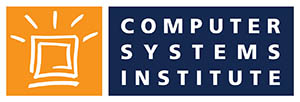When you dream about your nine-to-five, what do you picture? Can you see yourself building and designing websites? The digital age has brought with it a high demand for skilled developers, making it a sought-after career. But how do you start your career in this field? What skills are necessary?
We’re here to give you more information on the qualifications you need to be a web developer, from essential technical skills to soft skill development and certifications. You’ll soon have a stronger sense of understanding and an idea of how you can enter this line of work.
Do You Need a Formal Education To Become a Web Developer?
One common question for aspiring web developers is whether formal education is required to break into the field. The answer depends largely on your goals and learning style.
While having a degree in computer science or a related field can provide a solid foundation, it is not always necessary. Many successful web developers have launched careers as self-taught programmers or through non-traditional educational routes such as boot camps, online/hybrid courses, and certification programs. These alternative learning paths offer flexibility and often focus on practical, hands-on experience that directly applies to real-world projects.
Ultimately, employers in the tech industry are less concerned about formal four-year degrees and more focused on your actual skills and portfolio. Whether you gain experience from a degree program or through hybrid courses, what matters most is your ability to demonstrate technical competence on the job.
Essential Technical Skills Every Web Developer Must Have
Regardless of how you acquire your knowledge, there are certain technical skills that every web developer needs.
Mastery of Programming Languages (HTML, CSS, JavaScript, etc.)

At the core of web development lie programming languages. HTML (Hypertext Markup Language), CSS (Cascading Style Sheets), and JavaScript serve as the foundations for creating and designing websites. HTML focuses on structuring the content, CSS deals with styling and layout, and JavaScript adds interactive elements, such as dynamic forms or animated graphics.
A strong grasp of these essential languages is non-negotiable for web developers. From there, you can expand into other programming languages like Python, Ruby, or PHP, depending on the type of projects you want to work on.
An Understanding of Front-End vs. Back-End Development
Next, you need to understand the two main branches of web development: front-end and back-end development. Front-end developers focus on the visible parts of the website that users interact with. You would use tools like HTML and libraries like React or Vue.js. Back-end developers, on the other hand, concentrate on the server-side architecture that supports website performance and functionality, using languages such as Python or Java.
Many developers choose to specialize in one of these areas, but others choose to become “full-stack developers,” mastering both front-end and back-end skills. This flexibility can make you a highly valuable asset in the job market.
Database Management Skills
Websites often rely on databases to store and retrieve important data, such as user information, product catalogs, or transaction logs. Knowing how to work with databases like MySQL, MongoDB, or PostgreSQL is crucial for back-end developers. You’ll also need to understand how to manage database queries, optimize data retrieval, and maintain data accuracy.
Familiarity With Web Development Frameworks
Frameworks help streamline the coding process, making development faster and more efficient. For front-end development, you might work with frameworks like Angular or Bootstrap. Popular frameworks for back-end development include Django (Python), Laravel (PHP), and Express.js (Node.js). Becoming comfortable with one or more frameworks can significantly improve your workflow and make you more attractive to potential employers.
The Importance of Soft Skills in Web Development
While technical expertise is essential, your success as a web developer also hinges on soft skills. These abilities often go overlooked but are crucial for collaborating with teams, managing projects, and solving complex problems.
Problem-Solving and Logical Thinking
Web development is as much about fixing problems as it is about building websites. Whether you’re debugging a stubborn piece of code or optimizing a slow-loading webpage, your problem-solving skills will be put to use every day. A logical mindset combined with patience and persistence will help you thrive in these situations.
Communication and Collaboration
Web development often involves working closely with clients, designers, or other developers. Effective communication is key to understanding project goals, discussing timelines, and resolving any issues that arise during development. Additionally, teamwork and collaboration allow you to integrate your skills with others for the best project outcomes.
Time Management and Organization
With multiple deadlines and overlapping projects, time management and organizational skills are crucial. Learning to balance your workload, set realistic timelines, and meet your deliverables will help your career and build trust with clients and team members.
Are Certifications Necessary for Web Developers?
Certifications are not mandatory for becoming a web developer, but they can be highly beneficial. They demonstrate your commitment to learning and mastering specific tools, frameworks, or methodologies. Additionally, certifications are a great way to stand out in a competitive job market.
Many industry-recognized certifications are available. Computer Systems Institute (CSI) has one such web developer program that equips you with all the core skills you need to support the process of web development from start to finish. Our classes give you the flexibility to balance your student life with your studies. Considering CSI in your path to becoming a web developer can help open more doors and instill the confidence and knowledge you need to successfully start your career.
Building a Strong Portfolio To Showcase Your Skills

A portfolio is a vital tool for any aspiring web developer. It allows potential employers and clients to see your skills in action. Here’s how to build a standout portfolio:
- Showcase a variety of work, such as responsive websites, interactive applications, and back-end systems.
- Clearly outline what you contributed to each project, including the tools and technologies you used.
- Highlight projects that show how your skills have improved over time. Employers appreciate seeing progress and commitment.
- Put your portfolio on a sleek, professional website that reflects your skills and creativity.
Your portfolio is often the deciding factor for hiring managers, so invest in making it as polished and comprehensive as possible.
Breaking into the world of web development doesn’t require a rigid formula but does demand a mix of technical knowledge, creativity, and the right set of soft skills. If you want to work on the qualifications you need to be a web developer, remember to build a strong portfolio to showcase your talents and practice consistently to keep your skills fresh. With this knowledge, you’ll have everything you need to succeed—the only thing left to do is get started!







